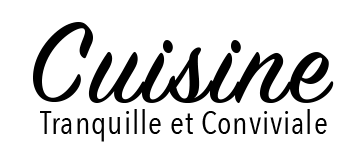Muscle memory is a neurological process that allows us to remember and perform motor skills without conscious thought. It is also known as motor learning or motor memory. When we learn a new skill, our brains create new neural pathways that are responsible for coordinating the movements of our muscles. With repeated practice, these neural pathways become stronger and more efficient, allowing us to perform the skill more smoothly and accurately.
Muscle memory is not actually stored in our muscles, as the name might suggest. Instead, it is stored in our brains. When we perform a motor skill, our brains send signals to our muscles telling them how to move. The more we practice a skill, the stronger these signals become, and the easier it is for our muscles to respond.
Muscle memory is important for a variety of reasons. It allows us to perform everyday tasks, such as walking, running, and eating, without having to think about them. It also allows us to learn and master complex skills, such as playing a musical instrument or speaking a new language.
How Muscle Memory Works
When we learn a new motor skill, our brains create new neural pathways that are responsible for coordinating the movements of our muscles. These neural pathways are initially weak and inefficient, but with repeated practice, they become stronger and more efficient. This is why it takes time and effort to learn a new skill, but once we have learned it, we can perform it with relatively little thought.
The exact mechanism of muscle memory is still not fully understood, but it is thought to involve a combination of changes in the brain, spinal cord, and muscles. One of the most important changes that occurs is the formation of new myonuclei. Myonuclei are the nuclei of muscle cells, and they contain the DNA that tells muscle cells how to grow and repair themselves. With repeated exercise, new myonuclei are added to muscle cells. This makes the muscle cells larger and stronger, and it also allows them to repair themselves more quickly after damage.
Benefits of Muscle Memory
Muscle memory has a number of benefits, including:
Improved performance: Muscle memory allows us to perform motor skills more smoothly and accurately. This can lead to improved performance in sports, music, and other activities.
Reduced risk of injury: Muscle memory helps us to coordinate our movements more effectively, which can help to reduce the risk of injuries.
Faster recovery from injuries: Muscle memory can help us to recover from injuries more quickly. This is because the neural pathways that are responsible for the injured skill are already in place.
Easier learning of new skills: Muscle memory can make it easier to learn new motor skills. This is because the neural pathways that are responsible for coordinating movements are similar for many different skills.
How to Use Muscle Memory to Your Advantage
If you want to use muscle memory to your advantage, you need to practice regularly. The more you practice a skill, the stronger the neural pathways that are responsible for it will become. This will make it easier for you to perform the skill in the future.
It is also important to practice correctly. If you practice a skill with poor form, you will ingrain the wrong movements into your muscle memory. This can make it difficult to learn the skill correctly later on.
If you are taking a break from training, it is important to stay active. This will help to maintain your muscle memory and make it easier to get back into training when you are ready.
Examples of Muscle Memory
Muscle memory is essential for a wide variety of activities, including:
Sports: Muscle memory allows athletes to perform complex movements, such as swinging a bat Super Set, throwing a ball, or running a race, without having to think about them.
Music: Muscle memory allows musicians to play their instruments without having to look at their fingers.
Dancing: Muscle memory allows dancers to perform complex choreography without having to think about each step.
Everyday activities: Muscle memory allows us to perform everyday activities, such as walking, running, and eating, without having to think about them.
Conclusion
Muscle memory is a powerful tool that can help us to improve our performance in a variety of activities. By practicing regularly and correctly, we can ingrain good habits into our muscle memory and make it easier to perform our best.
